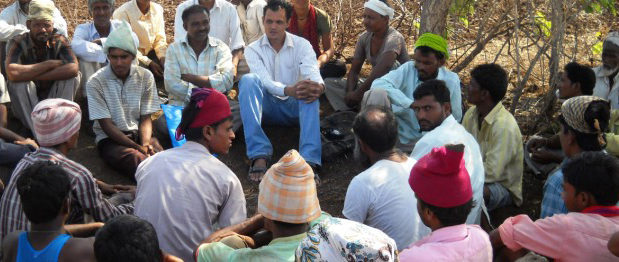CORO fellow links environmental work with local job creation
A fellow of the PHF-supported Committee of Resource Organisation for Literacy (CORO) has highlighted the need for conservation projects in India to be linked to job creation and localised governance, in a presentation to the UN Global Conference on Inland Fisheries.

Dr Nilesh Heda is the founder of Samvardan, an Indian charity working to address wetland degradation through local capacity building programmes. The organisation’s work engages with stakeholders such as fishermen, industry and agriculture to achieve a holistic solution to the degradation of essential resources.
CORO’s fellowships are designed to empower community organisations by developing key individuals within their leadership. The PHF India programme has supported its work with two grants, of £22,027 (1,872,000 Rs.) in March 2013 and £57,100 (5,710,000 Rs.) in 2014.
Dr Heda’s presentation is part of the conference theme “Drivers and Synergies” which focuses on the balance between societal gain and environmental benefit. The abstract for his paper states: “there is serious need to link employment generation of local people, rejuvenation of local decision-making and conflict resolution systems, and conservation.”
The presentation looked at how the work of Samvardan has been responding to the environmental crisis through developing employment opportunities. The work shows that the valuable knowledge of local communities can be used to achieve regional and national goals, and that providing a livelihood for rural people to restore ecosystems and fisheries achieves both short-term and long-term benefits.
PHF has funded CORO’s fellowship programme for the past year and a half with support extending for another three years. Since the beginning of the programme in 2008, CORO has developed 683 fellows. PHF’s funding to CORO has supported seven different organisations across senior leadership, mid-level teams and emerging grassroots leadership.
Fellows receive sponsorship to build leadership skills, project implementation skills, develop networking opportunities and other essential skills. NGOs in remote areas are typically under resourced or lack the capacity to develop strategy. The leadership and training provided by CORO allows community development to move away from responsive solutions to strategic ones. Guidance in establishing organisational systems, governance issues and community interface protect the longevity of grassroots organisations like that of Dr Heda’s Samvardan.


